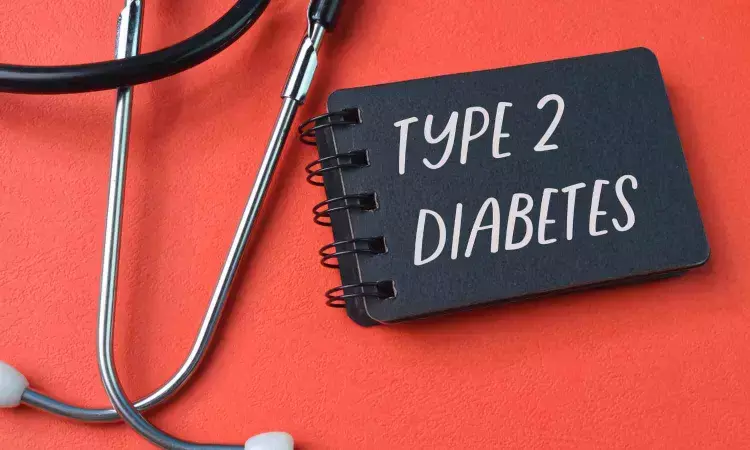- Home
- Medical news & Guidelines
- Anesthesiology
- Cardiology and CTVS
- Critical Care
- Dentistry
- Dermatology
- Diabetes and Endocrinology
- ENT
- Gastroenterology
- Medicine
- Nephrology
- Neurology
- Obstretics-Gynaecology
- Oncology
- Ophthalmology
- Orthopaedics
- Pediatrics-Neonatology
- Psychiatry
- Pulmonology
- Radiology
- Surgery
- Urology
- Laboratory Medicine
- Diet
- Nursing
- Paramedical
- Physiotherapy
- Health news
- Fact Check
- Bone Health Fact Check
- Brain Health Fact Check
- Cancer Related Fact Check
- Child Care Fact Check
- Dental and oral health fact check
- Diabetes and metabolic health fact check
- Diet and Nutrition Fact Check
- Eye and ENT Care Fact Check
- Fitness fact check
- Gut health fact check
- Heart health fact check
- Kidney health fact check
- Medical education fact check
- Men's health fact check
- Respiratory fact check
- Skin and hair care fact check
- Vaccine and Immunization fact check
- Women's health fact check
- AYUSH
- State News
- Andaman and Nicobar Islands
- Andhra Pradesh
- Arunachal Pradesh
- Assam
- Bihar
- Chandigarh
- Chattisgarh
- Dadra and Nagar Haveli
- Daman and Diu
- Delhi
- Goa
- Gujarat
- Haryana
- Himachal Pradesh
- Jammu & Kashmir
- Jharkhand
- Karnataka
- Kerala
- Ladakh
- Lakshadweep
- Madhya Pradesh
- Maharashtra
- Manipur
- Meghalaya
- Mizoram
- Nagaland
- Odisha
- Puducherry
- Punjab
- Rajasthan
- Sikkim
- Tamil Nadu
- Telangana
- Tripura
- Uttar Pradesh
- Uttrakhand
- West Bengal
- Medical Education
- Industry
Study Finds Elevated Asprosin Levels in New Diabetes Cases, Signaling Early Glucose Disruption

China: In a groundbreaking study published in Diabetes Research and Clinical Practice, researchers have shed light on the role of asprosin in the early stages of type 2 diabetes and prediabetes. Asprosin, a hormone discovered relatively recently, has been linked to glucose metabolism and appetite regulation. This study marks a significant step forward in understanding how its concentrations fluctuate in individuals on the cusp of diabetes.
This investigation revealed that individuals with prediabetes and those newly diagnosed with type 2 diabetes mellitus (T2DM) exhibit increased serum asprosin levels, indicating that elevated asprosin concentrations are linked to early disturbances in glucose homeostasis.
Hongcui Diao, Department of Endocrinology, Jinan Central Hospital, Shandong University, Jinan, China, and colleagues aimed to clarify the relationship between serum asprosin levels and T2DM occurrence in light of mixed findings about the asprosin's role in T2DM and the lack of studies on its effects on prediabetic conditions.
In the observational analysis, the cohort comprised 252 adults aged 22–69 recruited from Jinan Central Hospital. They were categorized into three groups; normal glucose tolerance (NGT), impaired glucose regulation (IGR), and T2DM groups.
Serum asprosin levels were measured using enzyme-linked immunosorbent assay (ELISA). In addition, all participants underwent assessments of various biochemical and anthropometric markers.
The following were the key findings of the study:
- Analysis revealed a notable rise in serum asprosin levels among individuals with newly diagnosed T2DM, with IGR subjects also demonstrating slightly elevated asprosin levels compared to the healthy group.
- Further stratification by quartiles of asprosin levels showed a progressive increase in the proportions of IGR + T2DM patients, highlighting a potential association between elevated asprosin and increased T2DM risk.
- The Receiver Operating Characteristic (ROC) curve analysis for the efficacy of asprosin in identifying IGR + T2DM yielded an area under curve (AUC) of 0.853, pointing to a threshold value of 4.95 ng/ml for asprosin.
In the study, individuals recently diagnosed with diabetes showed heightened serum asprosin levels, while those identified as prediabetic exhibited moderately increased levels. This pattern indicates a potential connection between elevated asprosin levels and disruptions in glucose-handling mechanisms, observable from the early stages of diabetes onset.
As the global burden of diabetes continues to rise, with over 400 million people affected worldwide, research into novel biomarkers like asprosin offers hope for more effective management and prevention strategies. This study not only deepens the understanding of diabetes pathophysiology but also underscores the potential of personalized medicine in tackling this widespread health challenge.
Reference:
Diao, H., Fan, X., Li, Z., Hou, L., Dong, Z., & Pang, S. (2024). Circulating asprosin concentrations in individuals with new-onset type 2 diabetes and prediabetes. Diabetes Research and Clinical Practice, 213, 111730. https://doi.org/10.1016/j.diabres.2024.111730
Dr Kamal Kant Kohli-MBBS, DTCD- a chest specialist with more than 30 years of practice and a flair for writing clinical articles, Dr Kamal Kant Kohli joined Medical Dialogues as a Chief Editor of Medical News. Besides writing articles, as an editor, he proofreads and verifies all the medical content published on Medical Dialogues including those coming from journals, studies,medical conferences,guidelines etc. Email: drkohli@medicaldialogues.in. Contact no. 011-43720751


